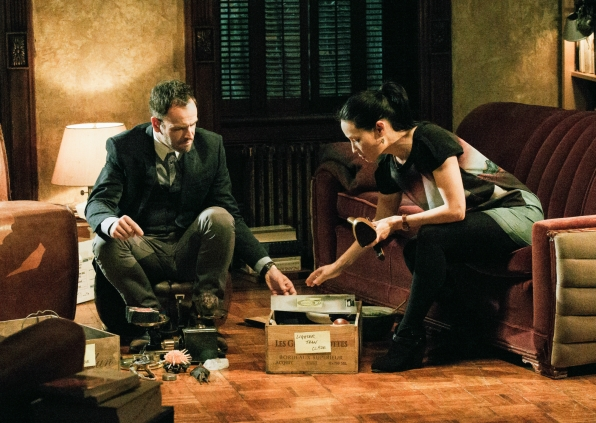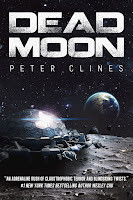Let’s start with a question. I’m guessing most of you have read a Sherlock Holmes story or three, yes? Seems like everyone ends up going through the first dozen cases or so at some point in their lives. So let me ask you something about them.
Why did Doctor Watson live with Sherlock Holmes?
No worries if you don’t know. I want to talk about the answer a bit. Truth is, this is a trick question because there’s two very different answers.
One answer is that Watson moved in with Holmes because he’d just returned from abroad (Watson was a retired soldier and battlefield medic, as some of you may know) and, well, he needed to find an apartment in London. A friend put him in contact with Sherlock Holmes, who needed a roommate, and the two found each other agreeable enough and bam, a legendary duo was born.
But…

Watson also moved in with Holmes because Arthur Conan Doyle (still a few years out from being “Sir”) needed a reason to explain why the two of them were always together. Since Watson was going to be narrating these stories, it gave him an excuse to be there when Homes had a third-pipe breakthrough. When Holmes woke up early with a solution, Watson was just in the other room. This meant Doyle didn’t need any odd additional exposition to explain how/why Watson knew things he otherwise wouldn’t be present for. He was an active witness for everything.
Now, I chose this particular example for a reason. There’s a pair of terms that’ve been drifting around for a while– Watsonian and Doylist (or sometimes Doylistic). Essentially, they refer to the different reasons things happen in a story. On one level, they happen because the characters are responding to plot events, making decisions and being active participants in the story. But on another level, things happen because I—the author—have structured and plotted the story in such a way that it passes information to the reader and gets certain specific reactions from said reader.
Let’s pick apart the first few chapters of one my recent books– The Broken Room. I want to talk about meeting Hector and what happens in the bar. And why it happens.
When we meet Hector it’s mid-afternoon and he’s already had a few drinks because he’s a guy with a lot of regrets and guilt he’s trying to forget. He’s chosen this particular dive bar for safety/security reasons, because Hector’s trying very hard to live off the grid, but old habits die hard. Especially when you’ve maybe got good reason to be cautious. When little Natalie walks up and starts talking to him, he’s immediately suspicious of who she is why she’s here because… well, nobody should know him (see all those previous points). When he realizes she’s at least somewhat on the level, and hasn’t eaten in a few days, he orders her some food because he’s a halfway decent guy. And when the men show up to claim her, Hector’s gut reaction is not to trust said guys (again, see above). Then there’s a moment where Hector’s weighing his own desire/ need to stay under the radar against… well, two guys harassing a little girl. And then he beats the crap out of said guys very quickly and efficiently, because that’s how Hector was trained to deal with problems.
All good in-character, in-world stuff, yes?
Now, on my side of things… I began with Hector half-drunk in a dive bar in the middle of the day because it immediately tells you he’s a bit of a burnout. Right there on page one. But there’s also all these little hints about the kind of person he is as we’re giving a description of his average morning and his tactical analysis of the bar. It’s the kind of stuff that makes the reader intrigued about who he is (or was). When Natalie shows up, it’s more analysis, we’re getting a stronger sense of who Hector is and how he views the world. And again—it’s intriguing. We’re immediately understand this guy comes with a lot of backstory. Getting Natalie some food is basically a “save the cat” moment. It’s him doing something decent early on that he didn’t need to do, reinforcing in the reader’s mind that Hector’s a good man. Finally, when the two men in suits show up, it’s Hector’s big moment. Now he’s given a chance to step away and go back to his normal life and instead he’s making an active decision to become part of the plot.
There’s two and a half chapters roughly broken down for you. The Watsonian reason why Hector is doing things. The Doylist reason he’s doing things.
When I’m reading something (or maybe watching something) that’s just not working for me, one thing I ask myself is what is the storyteller trying to do here? What reaction is this chapter/ scene/ interaction/ line supposed to get from me? What information is it trying to get across?
I think it’s important to be able to answer these questions. Last time I talked about how it’s fine to break the rules as long as you have an actual reason for breaking them. This is kind of the same thing. If I want to do a weird structure or have a horrible protagonist or an odd way of doing dialogue, that’s cool. There are a bunch of stories out there that went against the norm and did some amazing things.
But…
There’s also a lot of stories out there that went against the norm and did… well, nothing. They end up being boring, erratic, confusing, or just plain bad. And I think it’s because those storytellers didn’t know why they were doing things. Their only reason was… they wanted to? They saw someone else do it in a book and just decided to do it in their own completely different book. They just… thought it’d be cool because they were doing something different?
Y’see, Timmy, I need to know why my characters are doing things, and their reason for doing things need to make sense, on some level. But this also holds for me as the author, I need to know why I’m doing things with my story. What I’m hoping to accomplish. How I expect my readers will receive this structure, that format, those creative choices.
And like most things in life, if I’m just doing it to be cool… it’s probably not going to be cool.
Next time, tis the season and all, so I thought I’d talk about Leatherface, UberJason, and Frankenstein.
Until then, go write.











